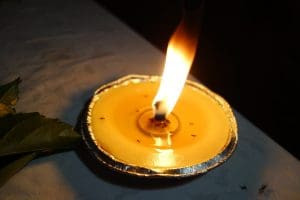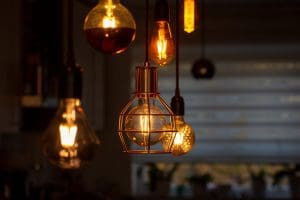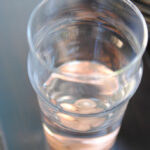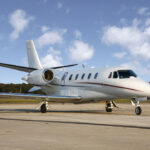Do Citronella Candles Work On Flies? Yes, citronella candles can be effective in repelling flies, providing a pleasant and natural solution for keeping these pesky insects away. At flyermedia.net, we’re dedicated to bringing you the most effective methods for enjoying your outdoor spaces without the annoyance of flies, utilizing insights from aviation and beyond. This article explores the science behind citronella, its effectiveness against flies, and alternative strategies for fly control, offering a comprehensive guide to creating a fly-free environment.
1. Understanding the Buzz About Flies
Before diving into whether citronella candles work on flies, it’s essential to understand the behavior of flies and the problems they pose.
1.1. Why Flies Are More Than Just a Nuisance
Flies aren’t just annoying; they can also be carriers of diseases. According to the World Health Organization (WHO), flies can transmit diseases like dysentery, typhoid, and cholera due to their unsanitary feeding habits. Flies visit garbage, sewage, and decaying matter, picking up bacteria and pathogens on their bodies and then transferring them to food and surfaces. This makes controlling fly populations crucial for maintaining a healthy environment.
1.2. Common Fly Species: Identifying Your Foe
Identifying the type of fly you’re dealing with is crucial for effective control. Here’s a quick look at some common species:
-
House Flies (Musca domestica): These are the most common flies found around homes. They are attracted to garbage, food waste, and animal feces.
-
Fruit Flies (Drosophila melanogaster): These small flies are attracted to ripe and fermenting fruits and vegetables.
-
Blow Flies (Calliphoridae): These larger, metallic-colored flies are attracted to decaying meat and animal carcasses.
-
Drain Flies (Psychodidae): These small, fuzzy flies breed in stagnant water and sewage.
Understanding which type of fly you’re dealing with can help you tailor your control strategies more effectively.
1.3. Factors That Attract Flies to Your Home
Several factors attract flies to your home, including:
-
Food Waste: Open garbage cans, uncovered food, and dirty dishes are prime attractants.
-
Standing Water: Flies breed in stagnant water, so leaky pipes, bird baths, and uncovered pools can be breeding grounds.
-
Animal Waste: Pet feces and improperly maintained compost piles can attract flies.
-
Sweet and Fermenting Substances: Overripe fruit, spilled drinks, and uncleaned spills can draw flies indoors.
Eliminating these attractants is the first step in controlling fly populations around your home.
 Citronella candles for fly control
Citronella candles for fly control
2. Citronella Candles: A Beacon of Hope?
Citronella candles have long been a popular choice for repelling insects. But do they really work on flies?
2.1. What is Citronella and How Does it Work?
Citronella is a natural oil extracted from the citronella grass plant (Cymbopogon nardus). Its effectiveness lies in its strong scent, which masks the odors that attract insects, including flies and mosquitoes. When a citronella candle is burned, the heat vaporizes the oil, releasing the scent into the air.
2.2. The Science Behind Citronella’s Repellent Properties
Research indicates that citronella works by interfering with an insect’s ability to detect the carbon dioxide and lactic acid in human breath and sweat, which are primary attractants. A study published in the Journal of Vector Ecology found that citronella oil can reduce mosquito landings by up to 35%. While not a complete deterrent, this reduction can make outdoor spaces more enjoyable.
2.3. Do Citronella Candles Work on Flies? Examining the Evidence
While citronella is more commonly associated with mosquito control, it can also repel flies. The strong scent of citronella disrupts the flies’ ability to locate food sources and hosts, leading them to avoid the area. However, the effectiveness of citronella candles on flies can vary depending on several factors, including the concentration of citronella oil, the size of the treated area, and wind conditions.
2.4. Factors Affecting the Effectiveness of Citronella Candles
Several factors can impact how well citronella candles work on flies:
-
Concentration of Citronella Oil: Candles with a higher concentration of citronella oil tend to be more effective. Look for candles that contain at least 5-10% citronella oil.
-
Coverage Area: Citronella candles are most effective in small, enclosed areas. In larger, open spaces, the scent may dissipate too quickly to provide adequate protection.
-
Wind Conditions: Wind can carry the scent away, reducing the candle’s effectiveness. Place candles in sheltered areas or use multiple candles to create a stronger scent barrier.
-
Fly Species: Some fly species may be more resistant to citronella than others.
2.5. Citronella Candles vs. Other Citronella Products
Citronella is available in various forms, including candles, torches, sprays, and lotions. Each product has its pros and cons:
| Product | Pros | Cons |
|---|---|---|
| Citronella Candles | Pleasant ambiance, easy to use | Limited coverage, can be affected by wind |
| Citronella Torches | Wider coverage area, longer burn time | Requires more space, potential fire hazard |
| Citronella Sprays | Direct application, can be used on clothing | Short-lasting, may need frequent reapplication |
| Citronella Lotions | Convenient for personal use, long-lasting | Can be greasy, may cause skin irritation in some individuals |
3. Maximizing the Fly-Repelling Power of Citronella
To get the most out of your citronella candles, follow these tips:
3.1. Choosing the Right Citronella Candle
-
Opt for High Concentration: Select candles with at least 5-10% citronella oil for maximum effectiveness.
-
Consider the Wax Type: Soy wax candles tend to burn cleaner and release the scent more effectively than paraffin wax candles.
-
Check the Wick: A thick wick can help produce a stronger scent throw.
3.2. Strategic Placement for Optimal Coverage
-
Create a Perimeter: Place candles around the perimeter of your outdoor space to create a scent barrier.
-
Focus on High-Traffic Areas: Position candles near seating areas, dining tables, and doorways to protect these areas from flies.
-
Use Multiple Candles: For larger areas, use multiple candles spaced evenly apart to ensure consistent coverage.
3.3. Burning Citronella Candles Safely
-
Keep Away from Flammable Materials: Place candles on a stable surface away from curtains, plants, and other flammable materials.
-
Never Leave Unattended: Always supervise burning candles and extinguish them before leaving the area or going to bed.
-
Keep Out of Reach of Children and Pets: Ensure candles are placed out of reach of children and pets to prevent accidents.
 Effective placement of citronella candles
Effective placement of citronella candles
4. Beyond Citronella: Additional Fly Control Strategies
While citronella candles can be a helpful tool, they are most effective when combined with other fly control strategies.
4.1. Natural Repellents to Complement Citronella
-
Essential Oils: Other essential oils like peppermint, lavender, eucalyptus, and lemongrass also have fly-repelling properties. Use them in diffusers or create a homemade spray by mixing a few drops with water.
-
Herbs: Planting herbs like basil, rosemary, and mint around your home can help repel flies. Place potted herbs near doorways and windows for added protection.
-
Vinegar: Flies dislike the smell of vinegar. Place bowls of apple cider vinegar near areas where flies are common. You can also add a few drops of dish soap to trap and drown the flies.
4.2. DIY Fly Traps: Simple and Effective Solutions
-
Sugar Water Trap: Fill a jar with sugar water and add a few drops of dish soap. Cover the jar with plastic wrap and poke small holes in the top. Flies will be attracted to the sweet liquid, enter the jar, and drown.
-
Vinegar Trap: Place apple cider vinegar in a bowl and cover it with plastic wrap. Poke small holes in the top. The flies will be attracted to the vinegar, enter the trap, and be unable to escape.
-
Flypaper: Hang strips of flypaper in areas where flies are common. The sticky surface will trap the flies.
4.3. Professional Pest Control: When to Call in the Experts
If you’ve tried various DIY methods and are still struggling with a fly infestation, it may be time to call in the professionals. Pest control experts have the knowledge, experience, and tools to effectively eliminate fly populations and prevent future infestations. They can identify the source of the problem, recommend appropriate treatments, and provide ongoing maintenance to keep your home fly-free.
5. Preventing Fly Infestations: Proactive Measures
Prevention is key to keeping flies away from your home. Here are some proactive measures you can take:
5.1. Maintaining a Clean and Sanitary Environment
-
Regularly Clean and Disinfect: Clean your home regularly, paying attention to areas where flies are likely to congregate, such as kitchens, bathrooms, and garbage areas.
-
Properly Dispose of Waste: Keep garbage cans clean and tightly sealed. Dispose of garbage regularly to prevent odors from attracting flies.
-
Clean Up Spills Immediately: Clean up food and drink spills immediately to prevent flies from being attracted to the sweet substances.
5.2. Managing Food Waste and Compost
-
Store Food Properly: Store food in airtight containers to prevent flies from accessing it.
-
Compost Responsibly: Maintain compost piles properly to prevent them from becoming breeding grounds for flies. Turn the compost regularly and cover it with a layer of soil or leaves.
-
Use Fly-Proof Compost Bins: Invest in compost bins that are designed to prevent flies from entering and breeding.
5.3. Addressing Standing Water Issues
-
Fix Leaks: Repair leaky pipes and faucets to eliminate standing water.
-
Empty Standing Water: Empty bird baths, flower pots, and other containers of standing water regularly.
-
Maintain Pools and Hot Tubs: Keep pools and hot tubs clean and properly chlorinated to prevent flies from breeding in the water.
5.4. Screening Windows and Doors
-
Install Screens: Install screens on windows and doors to prevent flies from entering your home.
-
Repair Damaged Screens: Repair any tears or holes in screens to ensure they are effective at keeping flies out.
-
Keep Doors and Windows Closed: Keep doors and windows closed as much as possible, especially during peak fly activity periods.
6. Debunking Common Myths About Fly Control
There are many myths surrounding fly control. Let’s debunk some of the most common ones:
6.1. Myth: Flies are Only a Problem in the Summer
While fly populations tend to be higher in the summer, flies can be a problem year-round, especially in warmer climates. Flies can breed indoors and survive in cooler temperatures, so it’s important to take preventative measures even during the winter months.
6.2. Myth: Flies are Attracted to Light
While some insects are attracted to light, flies are primarily attracted to odors and food sources. Keeping your home clean and eliminating attractants is more effective than turning off the lights.
6.3. Myth: One Fly Isn’t a Big Deal
Even one fly can lay hundreds of eggs, leading to a rapid infestation. It’s important to take action as soon as you see a fly to prevent the problem from escalating.
6.4. Myth: All Flies are the Same
Different types of flies are attracted to different things. Identifying the type of fly you’re dealing with is crucial for effective control.
7. The Role of Technology in Fly Control
Technology is playing an increasingly important role in fly control. From smart traps to advanced insecticides, there are many innovative solutions available.
7.1. Smart Fly Traps: A Modern Solution
Smart fly traps use sensors and lures to attract and capture flies. Some models can even identify the species of fly and track fly populations over time. These traps can be controlled remotely and provide real-time data on fly activity.
7.2. Advanced Insecticides: Targeted and Effective
Advanced insecticides are designed to be more targeted and effective than traditional insecticides. They often contain ingredients that disrupt the flies’ nervous system or prevent them from reproducing. Some insecticides are also designed to be more environmentally friendly and less harmful to non-target species.
7.3. UV Light Traps: Attracting and Eliminating Flies
UV light traps use ultraviolet light to attract flies. Once the flies are close enough, they are either electrocuted or trapped on a sticky surface. These traps are commonly used in commercial settings but can also be effective in residential areas.
8. The Environmental Impact of Fly Control Methods
It’s important to consider the environmental impact of fly control methods. Some insecticides can be harmful to beneficial insects and wildlife.
8.1. Eco-Friendly Fly Control Options
-
Natural Repellents: Using natural repellents like essential oils and herbs is a more environmentally friendly option than using synthetic insecticides.
-
DIY Traps: Creating DIY traps using common household items is a cost-effective and eco-friendly way to control fly populations.
-
Beneficial Insects: Introducing beneficial insects like parasitic wasps can help control fly populations without harming the environment.
8.2. Responsible Use of Insecticides
If you choose to use insecticides, it’s important to use them responsibly.
-
Read the Label: Always read and follow the instructions on the label carefully.
-
Use Sparingly: Use insecticides sparingly and only when necessary.
-
Avoid Spraying Near Water Sources: Avoid spraying insecticides near water sources to prevent contamination.
-
Dispose of Properly: Dispose of empty insecticide containers properly according to local regulations.
9. Fly Control in Specific Environments
Fly control can be particularly challenging in certain environments, such as farms, restaurants, and outdoor events.
9.1. Fly Control on Farms
Flies can be a major problem on farms, where they can transmit diseases to livestock and contaminate food products. Effective fly control on farms requires a multi-faceted approach that includes:
-
Manure Management: Properly managing manure is crucial for preventing fly breeding.
-
Sanitation: Keeping animal housing areas clean and dry can help reduce fly populations.
-
Trapping: Using fly traps can help capture and kill flies.
-
Insecticides: Insecticides may be necessary in some cases, but they should be used judiciously.
9.2. Fly Control in Restaurants
Flies can be a major problem in restaurants, where they can contaminate food and create an unsanitary environment. Effective fly control in restaurants requires:
-
Sanitation: Keeping the kitchen and dining areas clean and free of food waste is crucial.
-
Proper Food Storage: Storing food properly can prevent flies from accessing it.
-
Fly Traps: Using fly traps can help capture and kill flies.
-
Professional Pest Control: Regular professional pest control services can help keep fly populations under control.
9.3. Fly Control at Outdoor Events
Flies can be a nuisance at outdoor events, where they can annoy attendees and contaminate food. Effective fly control at outdoor events requires:
-
Sanitation: Keeping the event area clean and free of food waste is crucial.
-
Fly Traps: Using fly traps can help capture and kill flies.
-
Repellents: Providing attendees with fly repellent can help keep them comfortable.
-
Air Curtains: Using air curtains can help prevent flies from entering enclosed areas.
10. FAQs About Citronella Candles and Fly Control
10.1. Are Citronella Candles Safe for Pets?
Citronella candles are generally safe for pets, but it’s important to keep them out of reach to prevent accidental ingestion. Some pets may be sensitive to the scent of citronella, so watch for any signs of irritation or discomfort.
10.2. How Long Do Citronella Candles Last?
The burn time of citronella candles varies depending on the size and type of candle. Check the product label for estimated burn times.
10.3. Can I Make My Own Citronella Candles?
Yes, you can make your own citronella candles by adding citronella oil to melted wax. Be sure to use a high-quality wax and wick for best results.
10.4. Do Citronella Candles Repel All Types of Flies?
Citronella candles can repel many types of flies, but some species may be more resistant than others.
10.5. Are Citronella Candles Effective Against Mosquitoes Too?
Yes, citronella candles are also effective against mosquitoes. In fact, they are one of the most popular natural mosquito repellents.
10.6. Can I Use Citronella Oil Directly on My Skin?
It’s generally not recommended to use citronella oil directly on your skin, as it can cause irritation in some individuals. Instead, use a citronella-based lotion or spray that is specifically formulated for skin application.
10.7. How Often Should I Replace My Citronella Candles?
Replace your citronella candles when they are nearing the end of their burn time or when they are no longer producing a strong scent.
10.8. Are There Any Alternatives to Citronella Candles?
Yes, there are many alternatives to citronella candles, including essential oil diffusers, fly traps, and professional pest control services.
10.9. Where Can I Buy Citronella Candles?
Citronella candles are widely available at home improvement stores, garden centers, and online retailers.
10.10. How Much Do Citronella Candles Cost?
The cost of citronella candles varies depending on the size, type, and brand. You can typically find citronella candles for as little as $5 to $10.
At flyermedia.net, we aim to provide comprehensive information to help you make informed decisions about fly control and other aspects of aviation and outdoor living. Remember to explore our site for more tips and insights.
Citronella candles can be a valuable tool in your fight against flies, providing a natural and pleasant way to enjoy your outdoor spaces. By understanding how citronella works, maximizing its effectiveness, and combining it with other fly control strategies, you can create a fly-free environment for yourself and your family.
Ready to take control of your outdoor spaces? Visit flyermedia.net today to explore more tips, insights, and solutions for fly control, aviation, and beyond. Discover how to create the perfect fly-free environment while staying informed and inspired. Whether you’re seeking expert advice on natural repellents or innovative pest control technologies, flyermedia.net is your go-to resource for a healthier, happier, and more enjoyable outdoor experience.
Contact us
Address: 600 S Clyde Morris Blvd, Daytona Beach, FL 32114, United States
Phone: +1 (386) 226-6000
Website: flyermedia.net

